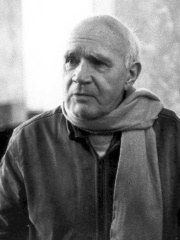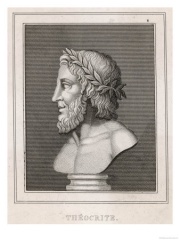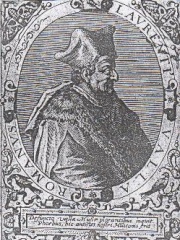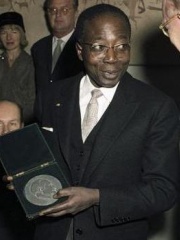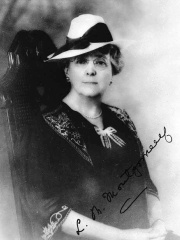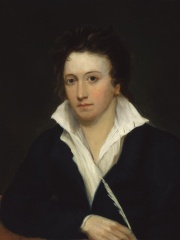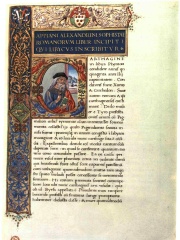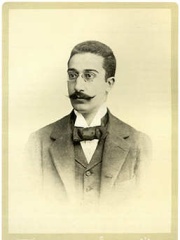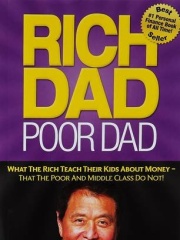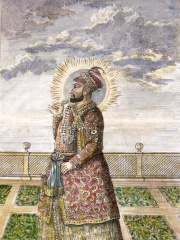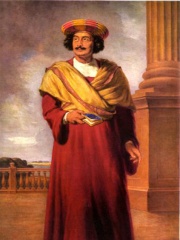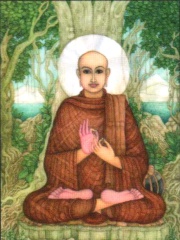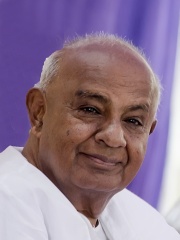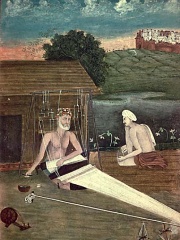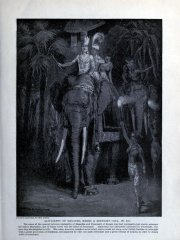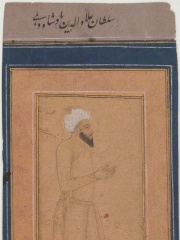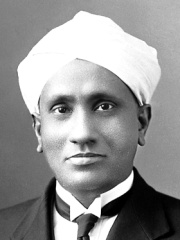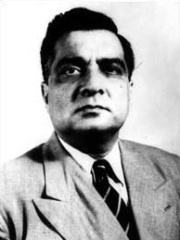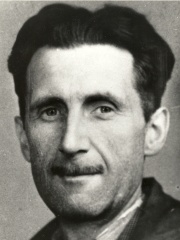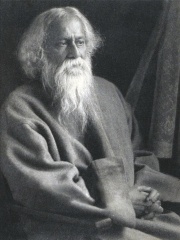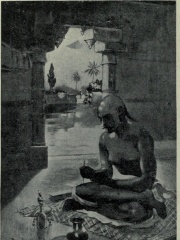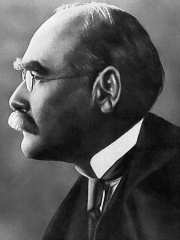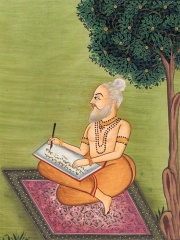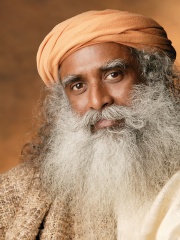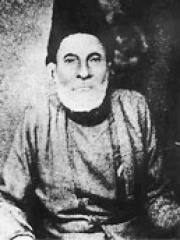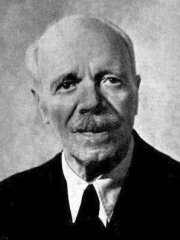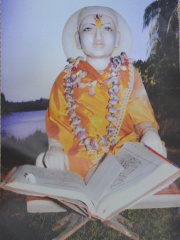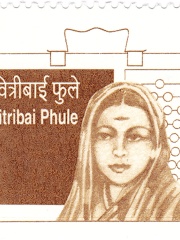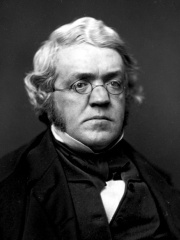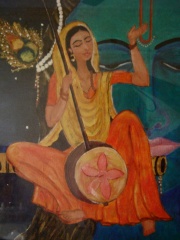WRITER
Salman Rushdie
1947 - Today
 Salman Rushdie
Salman Rushdie
Sir Ahmed Salman Rushdie (born 19 June 1947) is an Indian-born British and American novelist. His work often combines magical realism with historical fiction and primarily deals with connections, disruptions, and migrations between Eastern and Western civilizations, typically set on the Indian subcontinent. Rushdie's second novel, Midnight's Children (1981), won the Booker Prize in 1981 and was deemed to be "the best novel of all winners" on two occasions, marking the 25th and the 40th anniversary of the prize. After his fourth novel, The Satanic Verses (1988), Rushdie became the subject of several assassination attempts and death threats because of what was seen by some to be an irreverent depiction of Muhammad. Read more on Wikipedia
His biography is available in 98 different languages on Wikipedia (up from 97 in 2024). Salman Rushdie is the 378th most popular writer (down from 266th in 2024), the 57th most popular biography from India (down from 28th in 2019) and the 7th most popular Indian Writer.
Salman Rushdie is most famous for his controversial novel The Satanic Verses. The book was condemned by the Ayatollah Khomeini, and Rushdie was forced into hiding.
Memorability Metrics
Page views of Salman Rushdie by language
Among WRITERS
Among writers, Salman Rushdie ranks 378 out of 7,302. Before him are Mikhail Sholokhov, Jean Genet, Theocritus, Lorenzo Valla, Léopold Sédar Senghor, and Lucy Maud Montgomery. After him are Percy Bysshe Shelley, Margaret Mitchell, Appian, Karl May, Sayyid Qutb, and Constantine P. Cavafy.
Most Popular Writers in Wikipedia
Go to all RankingsMikhail Sholokhov
1905 - 1984
HPI: 74.46
Rank: 372
Jean Genet
1910 - 1986
HPI: 74.46
Rank: 373
Theocritus
315 BC - 260 BC
HPI: 74.44
Rank: 374
Lorenzo Valla
1407 - 1457
HPI: 74.42
Rank: 375
Léopold Sédar Senghor
1906 - 2001
HPI: 74.42
Rank: 376
Lucy Maud Montgomery
1874 - 1942
HPI: 74.40
Rank: 377
Salman Rushdie
1947 - Present
HPI: 74.40
Rank: 378
Percy Bysshe Shelley
1792 - 1822
HPI: 74.38
Rank: 379
Margaret Mitchell
1900 - 1949
HPI: 74.38
Rank: 380
Appian
95 - 165
HPI: 74.36
Rank: 381
Karl May
1842 - 1912
HPI: 74.35
Rank: 382
Sayyid Qutb
1906 - 1966
HPI: 74.34
Rank: 383
Constantine P. Cavafy
1863 - 1933
HPI: 74.33
Rank: 384
Contemporaries
Among people born in 1947, Salman Rushdie ranks 29. Before him are Carlos Santana, Iggy Pop, Herman Van Rompuy, Glenn Close, Robert Kiyosaki, and Ali Abdullah Saleh. After him are Takeshi Kitano, Gerd Binnig, Françoise Barré-Sinoussi, Paco de Lucía, France Gall, and Michael Levitt.
Others Born in 1947
Go to all RankingsCarlos Santana
MUSICIAN
1947 - Present
HPI: 74.91
Rank: 23
Iggy Pop
MUSICIAN
1947 - Present
HPI: 74.75
Rank: 24
Herman Van Rompuy
POLITICIAN
1947 - Present
HPI: 74.69
Rank: 25
Glenn Close
ACTOR
1947 - Present
HPI: 74.65
Rank: 26
Robert Kiyosaki
BUSINESSPERSON
1947 - Present
HPI: 74.54
Rank: 27
Ali Abdullah Saleh
POLITICIAN
1947 - 2017
HPI: 74.46
Rank: 28
Salman Rushdie
WRITER
1947 - Present
HPI: 74.40
Rank: 29
Takeshi Kitano
FILM DIRECTOR
1947 - Present
HPI: 73.76
Rank: 30
Gerd Binnig
PHYSICIST
1947 - Present
HPI: 73.15
Rank: 31
Françoise Barré-Sinoussi
BIOLOGIST
1947 - Present
HPI: 73.09
Rank: 32
Paco de Lucía
MUSICIAN
1947 - 2014
HPI: 73.06
Rank: 33
France Gall
SINGER
1947 - 2018
HPI: 72.97
Rank: 34
Michael Levitt
CHEMIST
1947 - Present
HPI: 72.94
Rank: 35
In India
Among people born in India, Salman Rushdie ranks 57 out of 1,861. Before him are Hyder Ali (1720), Ram Mohan Roy (1772), Sariputta (-568), H. D. Deve Gowda (1933), Kabir (1440), and Ajatashatru (-500). After him are Alauddin Khalji (1266), Ronald Ross (1857), C. V. Raman (1888), P. V. Narasimha Rao (1921), Salman Khan (1965), and Iskander Mirza (1899).
Others born in India
Go to all RankingsHyder Ali
POLITICIAN
1720 - 1782
HPI: 75.03
Rank: 51
Ram Mohan Roy
PHILOSOPHER
1772 - 1833
HPI: 75.03
Rank: 52
Sariputta
POLITICIAN
568 BC - 484 BC
HPI: 74.70
Rank: 53
H. D. Deve Gowda
POLITICIAN
1933 - Present
HPI: 74.63
Rank: 54
Kabir
PHILOSOPHER
1440 - 1518
HPI: 74.51
Rank: 55
Ajatashatru
POLITICIAN
500 BC - 460 BC
HPI: 74.51
Rank: 56
Salman Rushdie
WRITER
1947 - Present
HPI: 74.40
Rank: 57
Alauddin Khalji
POLITICIAN
1266 - 1316
HPI: 74.36
Rank: 58
Ronald Ross
PHYSICIAN
1857 - 1932
HPI: 74.32
Rank: 59
C. V. Raman
PHYSICIST
1888 - 1970
HPI: 74.29
Rank: 60
P. V. Narasimha Rao
POLITICIAN
1921 - 2004
HPI: 74.27
Rank: 61
Salman Khan
ACTOR
1965 - Present
HPI: 74.25
Rank: 62
Iskander Mirza
POLITICIAN
1899 - 1969
HPI: 74.18
Rank: 63
Among WRITERS In India
Among writers born in India, Salman Rushdie ranks 7. Before him are George Orwell (1903), Rabindranath Tagore (1861), Kālidāsa (400), Rudyard Kipling (1865), Valmiki (-80), and Jaggi Vasudev (1957). After him are Ghalib (1797), Jim Corbett (1875), Tulsidas (1532), Savitribai Phule (1831), William Makepeace Thackeray (1811), and Meera (1498).
George Orwell
1903 - 1950
HPI: 85.28
Rank: 1
Rabindranath Tagore
1861 - 1941
HPI: 83.47
Rank: 2
Kālidāsa
400 - 420
HPI: 82.51
Rank: 3
Rudyard Kipling
1865 - 1936
HPI: 79.04
Rank: 4
Valmiki
80 BC - 2 BC
HPI: 76.21
Rank: 5
Jaggi Vasudev
1957 - Present
HPI: 75.17
Rank: 6
Salman Rushdie
1947 - Present
HPI: 74.40
Rank: 7
Ghalib
1797 - 1869
HPI: 74.00
Rank: 8
Jim Corbett
1875 - 1955
HPI: 73.39
Rank: 9
Tulsidas
1532 - 1623
HPI: 73.16
Rank: 10
Savitribai Phule
1831 - 1897
HPI: 73.12
Rank: 11
William Makepeace Thackeray
1811 - 1863
HPI: 71.73
Rank: 12
Meera
1498 - 1546
HPI: 71.21
Rank: 13


